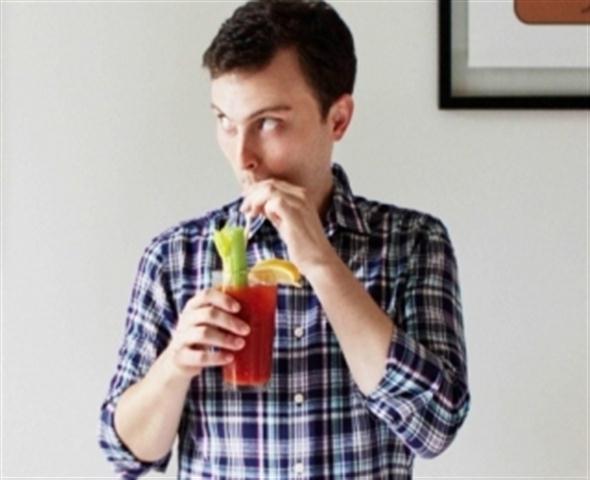 Peter Joseph is the author of the recipe guide Boozy Brunch: The Quintessential Guide to Daytime Drinking, just published by Taylor Trade. He has written about cocktails and pop culture for Flavorwire, Lost magazine and Pop Matters. A senior editor at Thomas Dunne Books, he lives in Brooklyn.
Peter Joseph is the author of the recipe guide Boozy Brunch: The Quintessential Guide to Daytime Drinking, just published by Taylor Trade. He has written about cocktails and pop culture for Flavorwire, Lost magazine and Pop Matters. A senior editor at Thomas Dunne Books, he lives in Brooklyn.
On your nightstand now:
Magic Hours by Tom Bissell, Tubes by Andrew Blum, Savages by Don Winslow and a teetering stack of Atlantic, Imbibe, New York, New Yorker, One Story and Time Out New York. A slightly dated American Heritage dictionary--its back cover boasts "new entries for such terms as barrio, E-mail, fiber optics, T-cell, and wetland"--remains a permanent fixture. Most recently I had to look up "hegira," thanks to Bissell.
Favorite book when you were a child:
I loved Roald Dahl's books, but I read C.S. Lewis's The Voyage of the Dawn Treader more times than any other book. It seemed barely related to the other Narnia novels and more just a good sea adventure, along the lines of Heyerdahl or, well, Homer.
Your top five authors:
I don't really have "top" authors--there are just so many good books--but some of my long-time favorites include Douglas Adams, Billy Collins, Lorrie Moore, Mary Roach and Kurt Vonnegut. These days I've been talking a lot about China Mieville and Bissell. And David Wondrich holds the position of best cocktail writer working today, though really he could probably write about anything and stand out.
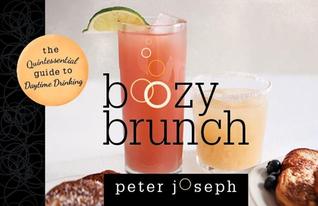 Book you've faked reading:
Book you've faked reading:
In high school I faked reading J.B. by Archibald Macleish and then mispronounced "Job" (rhyming it with "lob" instead of "lobe") when asked to read in class. It might not seem like a big thing, but at a Catholic high school my classmates noticed. I'd like to think I learned something from that embarrassment and made sure to actually do the work in the years following.
For those of us working in publishing, it's too easy to talk about books of which you've read reviews, commentary and sales copy but never actually picked up the work itself. That's a trap I try to avoid, with occasional success.
Book you're an evangelist for:
For years I gave people copies of Mary Roach's Stiff and Robert Sullivan's Rats as examples of good, popular nonfiction writing. More recently I've been telling people to read Some We Love, Some We Hate, Some We Eat: Why It's So Hard to Think Straight About Animals by Hal Herzog. Whether you're vegetarian and fretting about going vegan or you're a carnivore considering getting on the tofu wagon, this book examines a lot of the inconsistencies and contradictions that come with our relationships with animals. (There's also a memorable explanation of why the popularity of both the Beatles and Golden Retrievers can be chalked up to random drift.)
Book you've bought for the cover:
While living on an editorial assistant's salary, I bought complete sets of Georges Simenon and Leonardo Sciascia from New York Review Books. It was a very expensive impulse purchase, to say the least, but I love NYRB's packaging--I wish more publishers could follow such a simple, uniform style.
Book that changed your life:
Finding Douglas Adam's Hitchhiker's Guide to the Galaxy series in my middle school library--a private Catholic school library presided over by a nun, no less--probably affected my worldview more than anything else.
Favorite line from a book:
Not a line, but a scene from Winner of the National Book Award by Jincy Willett. It's a passionate rant about the "sensual experience of reading" and the memories of those moments. She captured that nostalgia for specific times in a reading life--the book read under the covers, or at the beach, or late one night in a 24-hour diner--that most of us possess.
Book you most want to read again for the first time:
It's impossible, but I often wish I could read the books that I've edited as a reader. Instead, whenever I look at them I can remember all the revisions, cuts, and additions that have happened along the way to publication. So my experience reading them will always be different from that of someone with looking at them with fresh eyes.
The best book to read that combines publishing and cocktail history:
Not a large category, I admit, but if you want to read about the publishing world during Prohibition, then find yourself a copy of Firebrand: The Life of Horace Liveright by Tom Dardis. He's a much livelier character than the more often remembered "editor of genius" Max Perkins. Liveright was a bon vivant who established his publishing house on a street notorious for its speakeasies, which should tell you something about his behavior. His life story is a good counterpoint to his former partner Bennett Cerf's tale of success in At Random, and should be read by every young person in publishing as a caution against over-imbibing and selling off the rights to your backlist.
 Tomorrow in California, Amazon will "take on a role it has fought against for years: tax collector," as the Associated Press put it, adding that the imminent deadline for the online retailer to begin collecting and remitting sales tax on purchases by Golden State customers "has spurred at least some consumers into impulse-buying mode, making big-ticket purchases and stocking up on essentials before the tax collection kicks in."
Tomorrow in California, Amazon will "take on a role it has fought against for years: tax collector," as the Associated Press put it, adding that the imminent deadline for the online retailer to begin collecting and remitting sales tax on purchases by Golden State customers "has spurred at least some consumers into impulse-buying mode, making big-ticket purchases and stocking up on essentials before the tax collection kicks in."




SHELFAWARENESS.1222.S1.BESTADSWEBINAR.gif)



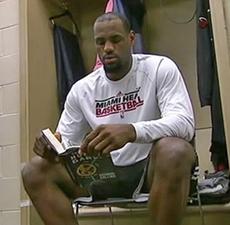 "Adult" is the key word in Young Adult book sales, according to new research from
"Adult" is the key word in Young Adult book sales, according to new research from SHELFAWARENESS.1222.T1.BESTADSWEBINAR.gif)
 On Demand Books, Eastman Kodak Company and ReaderLink have partnered to offer national retailers technology that integrates the Espresso Book Machine with Kodak Picture Kiosks, allowing consumers to print photo books, self-published titles, educational supplements and more. There are 105,000 Kodak Picture Kiosks installed worldwide with retailers, including CVS pharmacy in the U.S. On Demand Books will also work with ReaderLink to bring in-copyright titles to non-trade bookseller channels.
On Demand Books, Eastman Kodak Company and ReaderLink have partnered to offer national retailers technology that integrates the Espresso Book Machine with Kodak Picture Kiosks, allowing consumers to print photo books, self-published titles, educational supplements and more. There are 105,000 Kodak Picture Kiosks installed worldwide with retailers, including CVS pharmacy in the U.S. On Demand Books will also work with ReaderLink to bring in-copyright titles to non-trade bookseller channels. 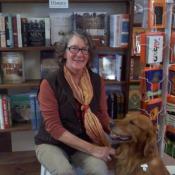 Liz Murphy (l.), owner of
Liz Murphy (l.), owner of 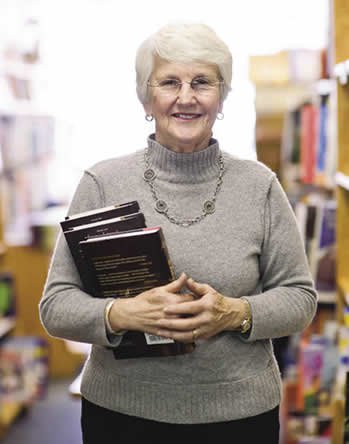
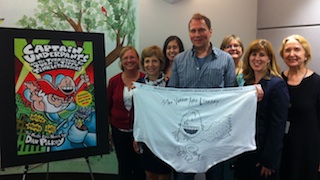 On Monday, the
On Monday, the 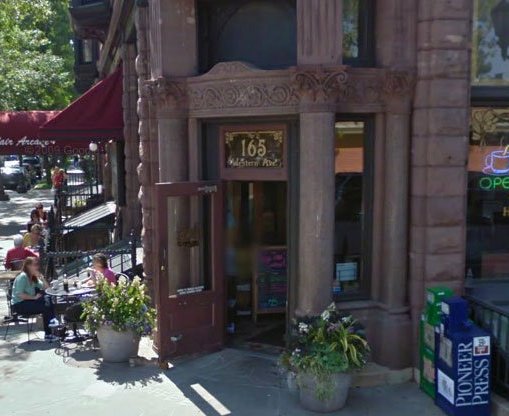 Congratulations to Sue Zumberge, owner of
Congratulations to Sue Zumberge, owner of 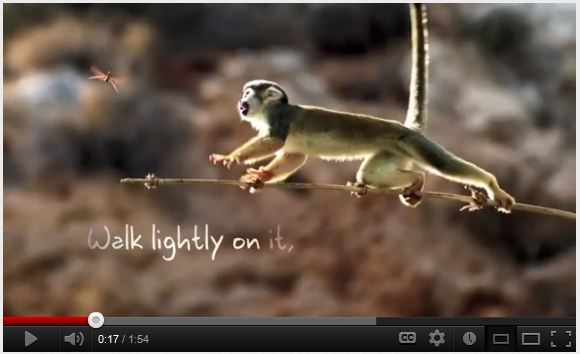 National Geographic Book of Animal Poetry: 200 Poems with Photographs That Squeak, Soar, and Roar!
National Geographic Book of Animal Poetry: 200 Poems with Photographs That Squeak, Soar, and Roar! Peter Joseph is the author of the recipe guide Boozy Brunch: The Quintessential Guide to Daytime Drinking, just published by Taylor Trade. He has written about cocktails and pop culture for Flavorwire, Lost magazine and Pop Matters. A senior editor at Thomas Dunne Books, he lives in Brooklyn.
Peter Joseph is the author of the recipe guide Boozy Brunch: The Quintessential Guide to Daytime Drinking, just published by Taylor Trade. He has written about cocktails and pop culture for Flavorwire, Lost magazine and Pop Matters. A senior editor at Thomas Dunne Books, he lives in Brooklyn. Book you've faked reading:
Book you've faked reading: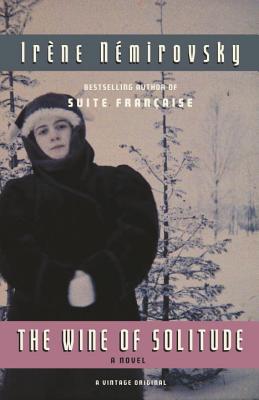 Since the posthumous publication of Suite Française, many more of Irène Némirovsky's works have been translated and re-translated, none more autobiographical than The Wine of Solitude, a bittersweet account of a young girl growing up in spite of her neglectful parents. It's a fiercely brave and angry little book, unsettling rather than satisfying, brutally unsentimental, stripped of domestic fantasy. Hélène begins the tale as an eight-year-old who scorns kissing and affection and is determined to be happy, shuttled about from the sleepy provincial Russian town where her tale begins to Paris, St. Petersburg and Finland, and grows into a lovely teenager determined to punish her spoiled, self-indulgent mother for years of selfishness.
Since the posthumous publication of Suite Française, many more of Irène Némirovsky's works have been translated and re-translated, none more autobiographical than The Wine of Solitude, a bittersweet account of a young girl growing up in spite of her neglectful parents. It's a fiercely brave and angry little book, unsettling rather than satisfying, brutally unsentimental, stripped of domestic fantasy. Hélène begins the tale as an eight-year-old who scorns kissing and affection and is determined to be happy, shuttled about from the sleepy provincial Russian town where her tale begins to Paris, St. Petersburg and Finland, and grows into a lovely teenager determined to punish her spoiled, self-indulgent mother for years of selfishness.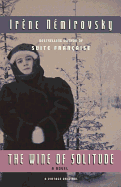
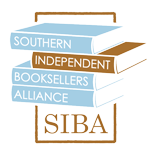 "My guess is you're here because you love books or are homeless or are dating someone who loves books," said author Randy Wayne White (Gone) during the SIBA Supper last Friday at the Southern Independent Booksellers Alliance trade show in Naples, Fla. He was talking about the critical importance of stories--found ones as well as lost ones: "If you have the calling to write; if your clients have the calling to write, I urge you to answer that call, to have them answer that call."
"My guess is you're here because you love books or are homeless or are dating someone who loves books," said author Randy Wayne White (Gone) during the SIBA Supper last Friday at the Southern Independent Booksellers Alliance trade show in Naples, Fla. He was talking about the critical importance of stories--found ones as well as lost ones: "If you have the calling to write; if your clients have the calling to write, I urge you to answer that call, to have them answer that call." 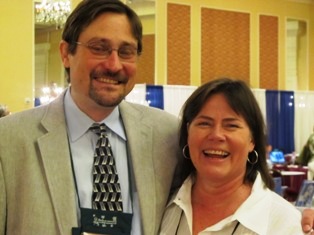 The SIBA show is a storyteller's theme park. Here's a story: Frazer Dobson and Sally Brewster of
The SIBA show is a storyteller's theme park. Here's a story: Frazer Dobson and Sally Brewster of 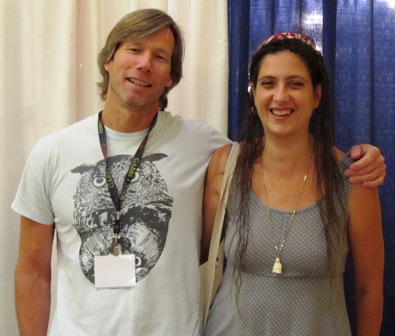 When Nicki Leone, SIBA's website administrator and newsletter editor, and programmer Ian Oeschger presented a "demystifying e-books" education session, they explored alternative and "hyperlocal" storytelling possibilities for indie booksellers, advising indies to create their own e-stories.
When Nicki Leone, SIBA's website administrator and newsletter editor, and programmer Ian Oeschger presented a "demystifying e-books" education session, they explored alternative and "hyperlocal" storytelling possibilities for indie booksellers, advising indies to create their own e-stories.